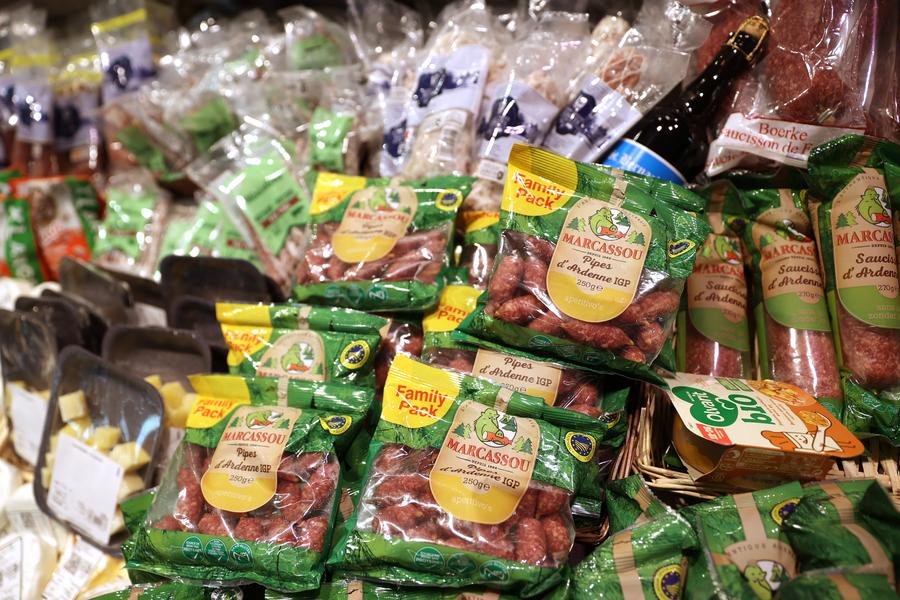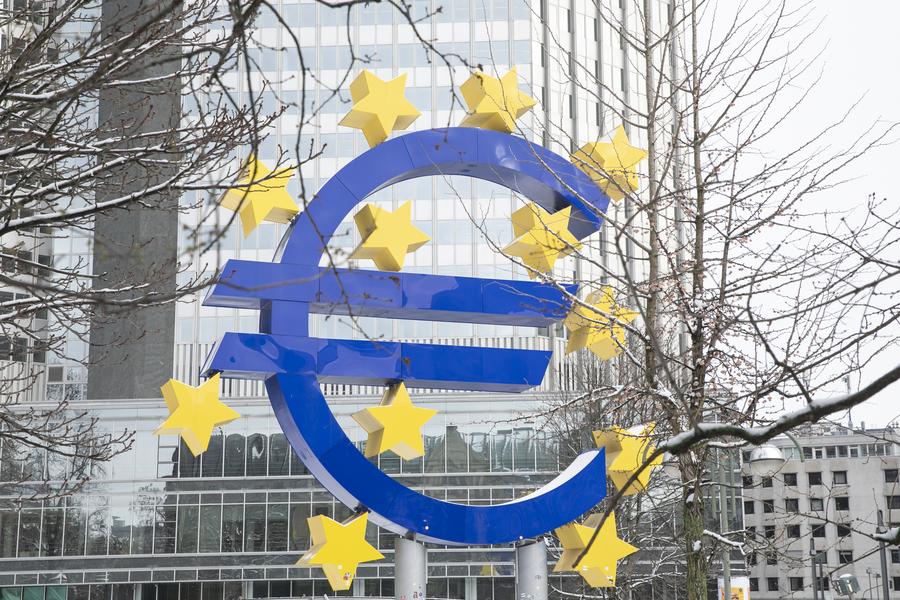
Wine bottles are displayed at a supermarket in Brussels, Belgium, May 31, 2024. (Xinhua/Zhao Dingzhe)
Countries with the highest inflation rates in May included Belgium (4.9%), Croatia (4.3%) and Portugal (3.9%).
BRUSSELS, May 31 (Xinhua) — Annual inflation in the euro zone is expected to reach 2.6 percent in May, according to provisional data released on Friday by the European Union's statistics office Eurostat.
Eurozone inflation stood at 2.4% in April and March, and has been on a generally declining trend in recent months.
The main driver of inflation in May was services prices, which rose to 4.1% compared to 3.7% in April.
Annual inflation for food, alcohol and tobacco is expected to reach 2.6%, down from 2.8% in the previous month.
Annual inflation for non-energy industrial products is expected to fall to 0.8% from 0.9% in April.
Energy prices are expected to record positive inflation of 0.3% year-on-year in May, up from -0.6% last month.

Food packages are displayed at a supermarket in Brussels, Belgium, May 31, 2024. (Xinhua/Zhao Dingzhe)
Countries with the highest inflation rates in May included Belgium (4.9%), Croatia (4.3%) and Portugal (3.9%).
The rise in euro zone inflation after months of consistent declines “suggests that the final push to get inflation back to target will not necessarily be easy,” said Bert Collin, senior euro zone economist at ING.
“The European Central Bank is expected to cut interest rates next week, but there will be heated debate over how much the ECB can ease the brakes on the economy for the rest of the year,” Collin said.
Factors to consider include a thriving labor market, ongoing supply chain disruptions and recovering purchasing power, according to Collin.
The European Central Bank (ECB) decided to keep its key interest rates unchanged in April, leaving open the possibility of a rate cut in June.

A euro sign is seen in Frankfurt, Germany, Jan. 18, 2024. Snow fell in Frankfurt on Thursday. (Xinhua/Zhang Fan)
After a months-long hiatus, experts widely expect the ECB to cut its key interest rate for the first time soon. “If inflation forecasts and new data support our current view, a rate cut is likely in June,” said ECB Governing Council member Isabelle Schnabel.
“The question remains as to how many more rate cuts there will be, with May's inflation numbers providing a warning that next week may not be the start of a traditional rate-cutting cycle,” Collin said.
(Web editors: Tsai Hai-lo and Zhong Wen-xing)

